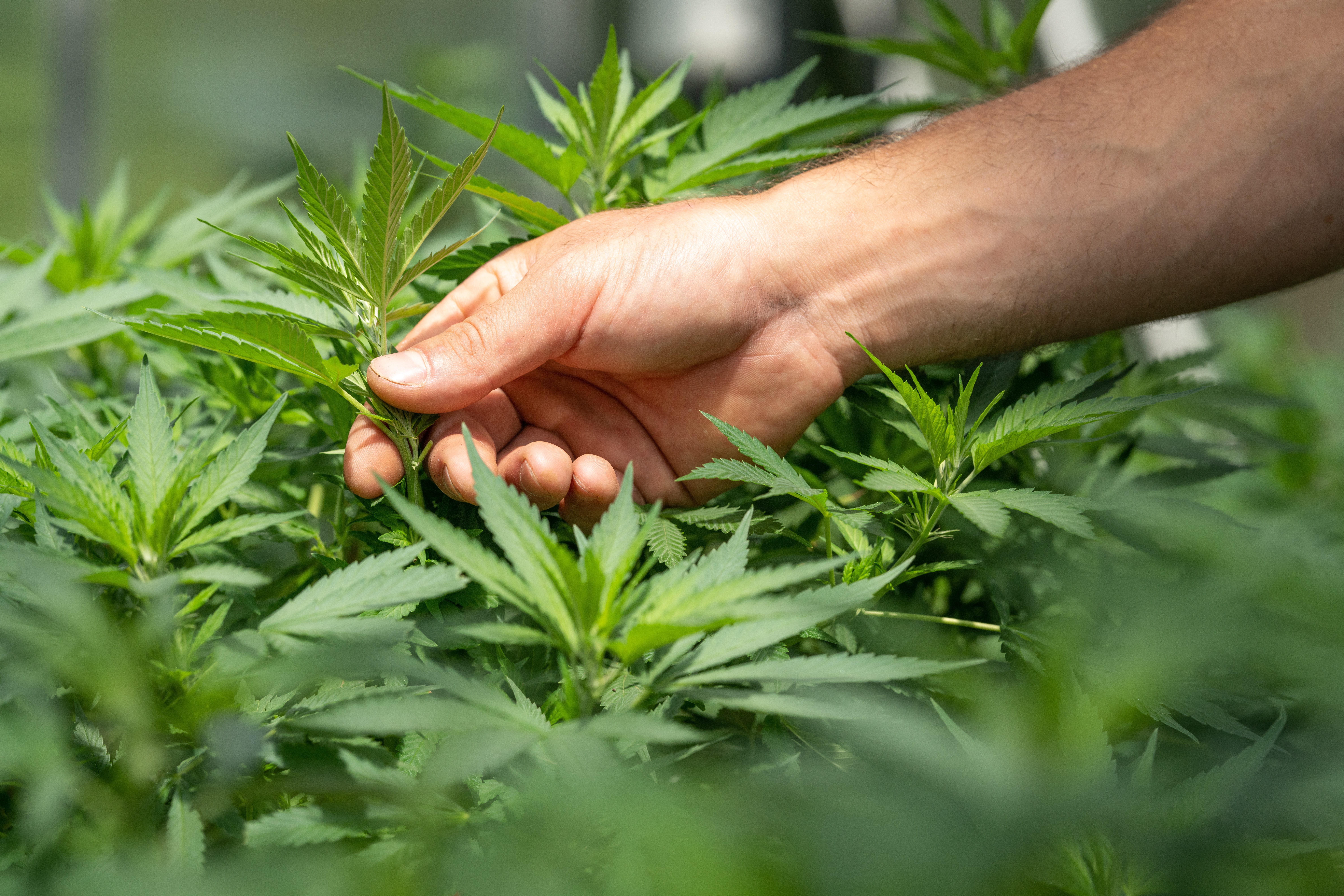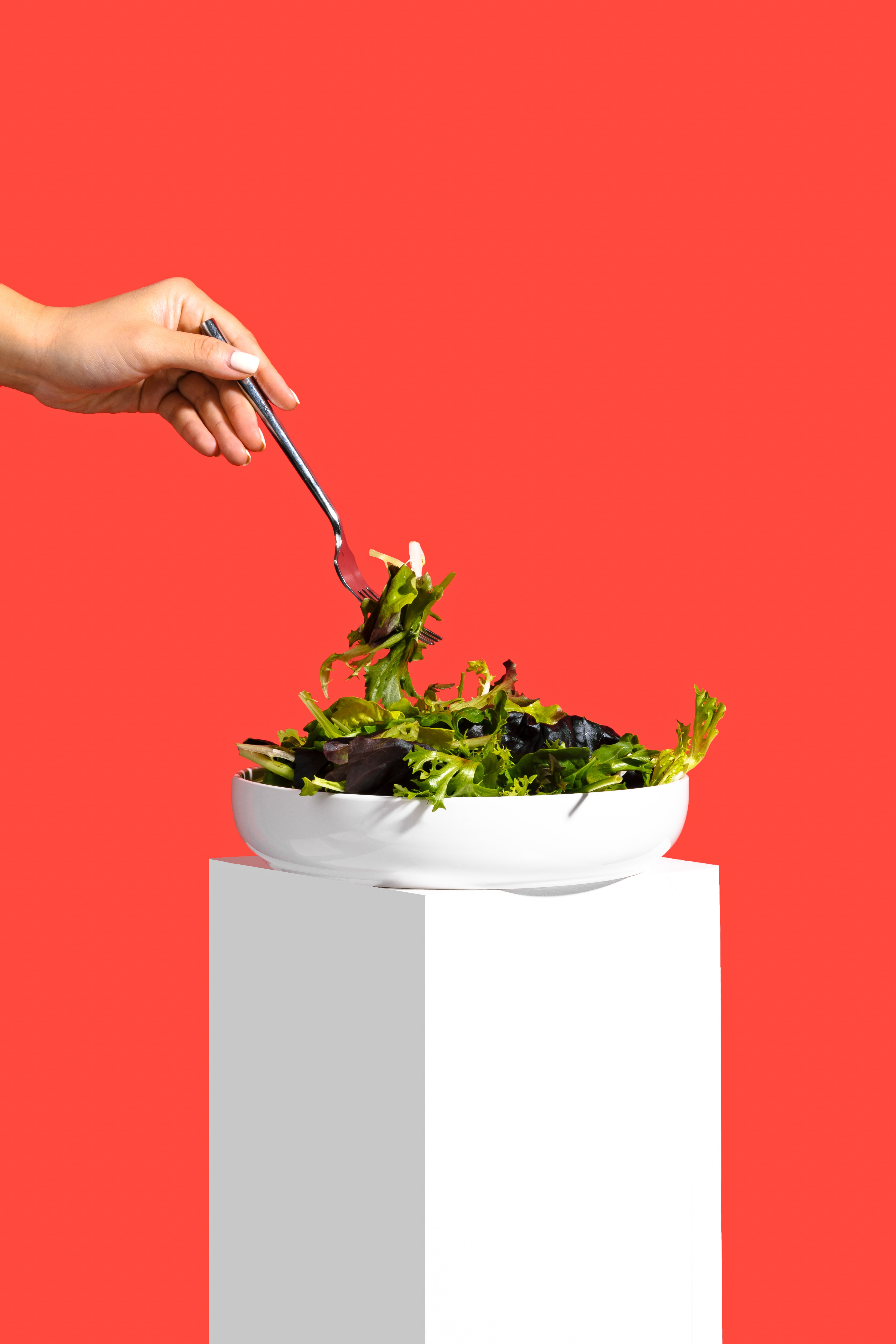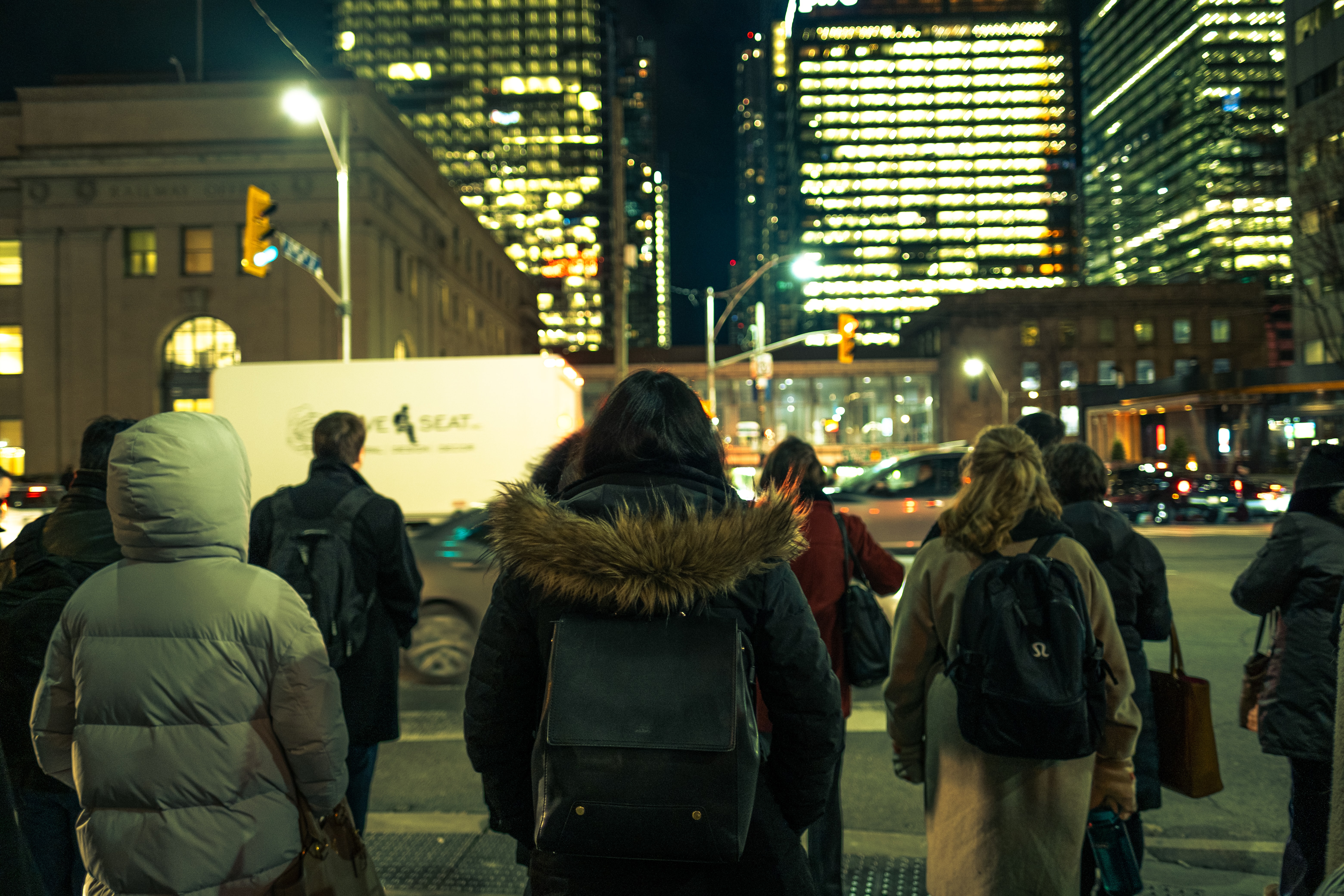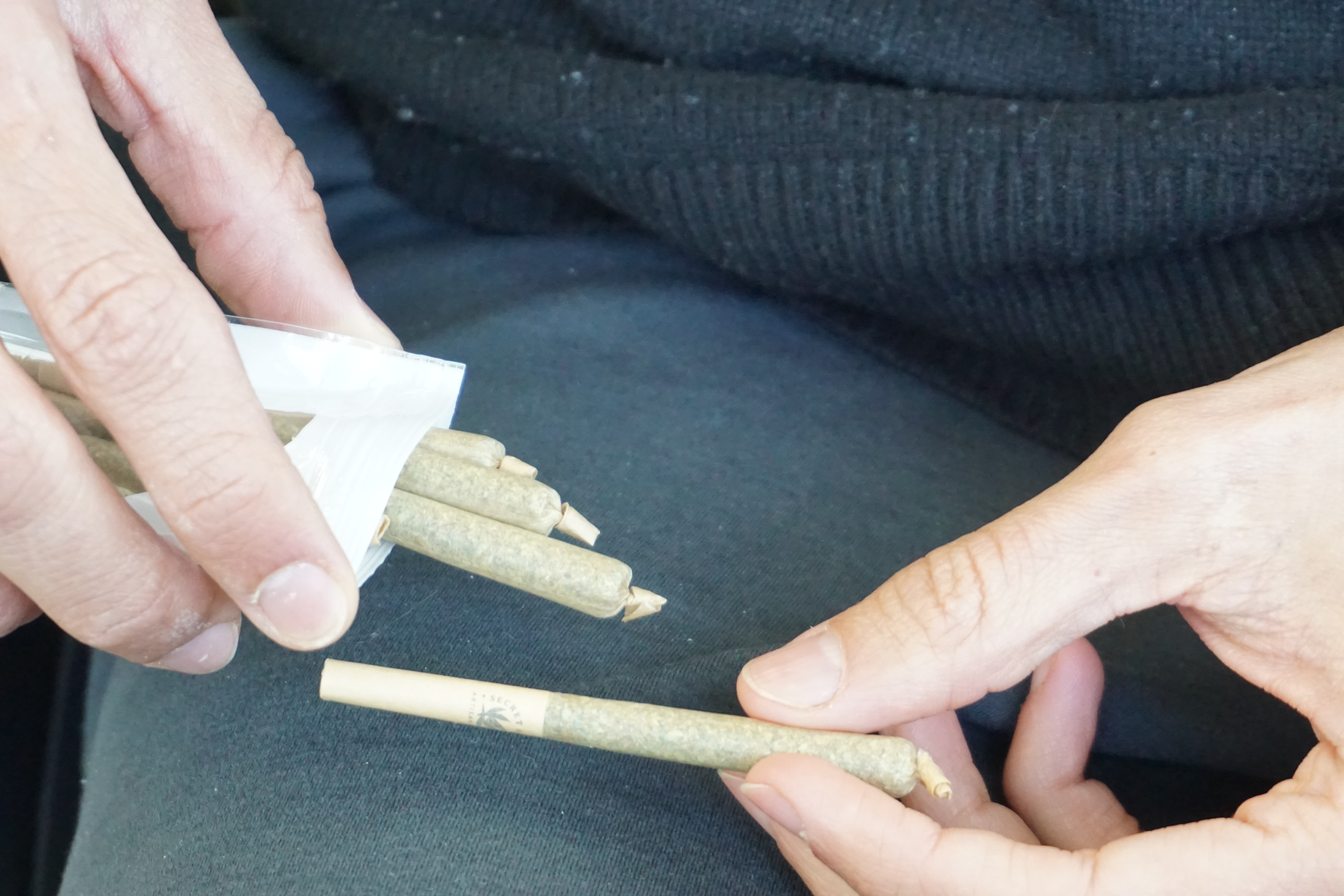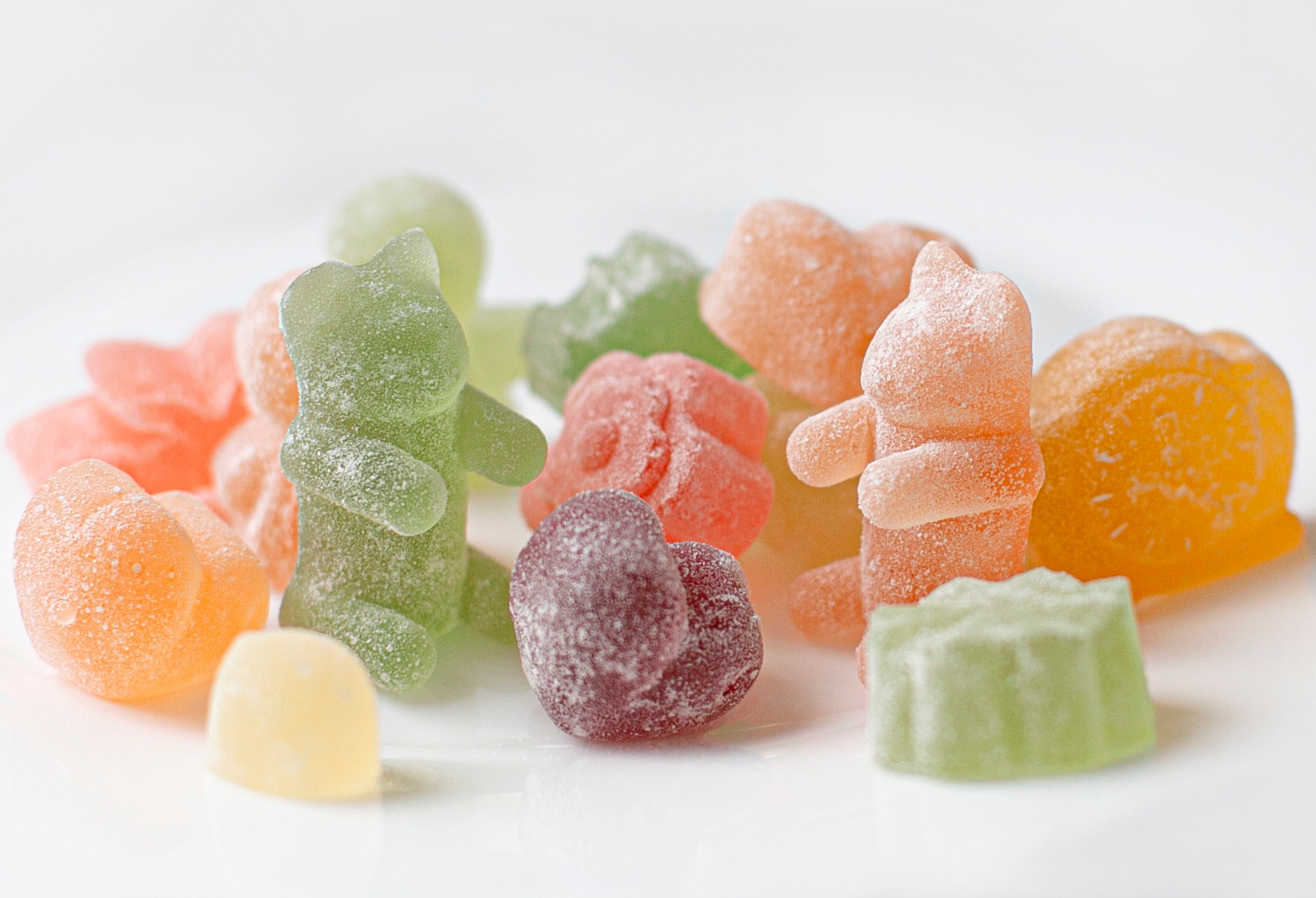It might be frustrating to see strands of hair on your comb after brushing or hair clogging in the bathroom after taking a bath. Even with this, hair fall is a regular occurrence. Whether old or young, hair fall can happen. An average loss of strands can be up to 50-100 a day, so seeing some loose strands around your house is not a reason to panic. And when hair loss does happen, your scalp naturally regrows more strands. How can you determine if you're losing too much hair, and what can be done about it? Obvious indicators of too much hair loss (that can eventually lead to baldness) can include many strands falling off by simply brushing it with your hands (one or two is okay, several is indicative of a problem) or if there is a patch on your scalp where sudden hair loss happens.
Rapid hair loss can be concerning, but there are available treatments that can help with this problem. A compound found in cannabis called CBD may be just what you need in hair loss prevention (and there is science to back it up). With the continuous growth of research, CBD (Cannabidiol) has shown great potential for hair care. Did you know that we have cannabinoids in the body? The Endocannabinoid System (ECS) is responsible for regulating our bodily functions, including hair cell growth. This system interacts with CBD, and studies show how this can result in hair loss prevention and increased hair regrowth, in addition to other possible benefits it can do with your hair. Read more to learn about the symptoms and causes of your hair fall and how CBD can help.
Hair Loss and its Symptoms
There are many ways you can identify when looking for signs of hair loss. These are primarily dependent on the root cause of it. This can happen gradually or suddenly, affecting the scalp or entire body. Symptoms of hair loss that you can look after are the following:
- Bald patches – these may vary in size and may be painful or itchy before the hairs fall off. These patchy bald spots may appear on the scalp, eyebrows, or beard.
- Gradual thinning – affecting people as they age, gradual thinning of hair, especially on top of the head, is a common symptom of hair loss. You may notice receding hairlines on the forehead or a broader gap on your hair if you part them.
- Loose Hair Strands – handfuls of hair may fall out when washing or combing it, even with a gentle tug. This may result in hair thinning but may be temporary.
- Scaling over the scalp – if you have scaling patterns spreading over the scalp, this might be a sign of ringworm. This is usually accompanied by redness, broken hair, swelling, and maybe even oozing.
What causes hair loss?
Hair loss can be caused by numerous aspects, whether physical or mental. They include the following:
1. Heredity
Hair loss commonly happens due to hereditary conditions mostly seen in aging. This is also known as androgenic alopecia, occurring gradually with predictable patterns. These can be bald spots and receding hairlines in men and thinning of hair on the crown of the scalp for women.
2. Radiation therapy
Chemotherapy and radiation exposure can cause rapid hair loss. Fortunately, hair can regrow after the treatment stops.
3. Stress
A kind of hair loss called Telogen Effluvium results from physical and emotional shock. Traumatic events, serious illness, or extreme stress can be the cause. Other hormonal changes most likely happen during menopause, pregnancy, or childbirth. Endocrine disorders, malnutrition, or birth control usage can also cause hair loss.
4. Types of hairstyles
Too much hairstyling that pulls your hair tightly, such as pigtails or other hairstyles, may cause traction alopecia. In addition, hot-oil treatments and perms may also result in hair loss. It’s possible that scarring may happen. If it does, hair loss might be permanent.
5. Supplements and Medication
Hair fall can be a side effect of some drugs, especially medications for cancer, depression, high blood pressure, and more.
6. Ringworms
On the scalp, this starts as a small pimple that continuously grows, creating temporary baldness or scaly patches. The fungus may enter the hair fibres that are affected by these and, as a result, make your hair brittle and cause hair loss.
How can CBD help?
Cannabidiol (CBD) is a compound located in cannabis plants that provides many health benefits from relieving pain and easing anxiety. You can choose wide varieties of CBD depending on how you want to consume it and get the best of its usefulness in your body. They can be in the form of oils, creams, edibles, and more.
In terms of hair treatment, CBD is known to help with hair regrowth after hair loss. Studies have shown that those who apply CBD oil topically on their scalp and hair for six months result in hair regrowth. Yes, you read that correctly, CBD has been proven to help grow hair back.
How does CBD work alongside our body to have less hair fall and more hair regrowth? Our hair and skin consist of receptors that respond to cannabinoids that are used externally, such as CBD. Once applied, the receptors reacting to the CBD promote new hair strands. In addition, the natural antioxidants present in CBD encourage a healthy scalp, lessening the amount of hair fall over time.
Since there are various causes of hair loss, what else can CBD offer to the table that can help alleviate some of the reasons?
1. Helps Alleviate Stress and Promotes Better Sleep
With stressful situations present in our lives, the stress levels one may feel can lead to an overproduction of cortisol, a hormone that triggers our "fight or flight" response. High amounts of cortisol increase hair loss, weight gain, and difficulty sleeping. There are better chances of getting restful sleep and less hair loss with lower cortisol levels.
Research has shown how CBD can help reduce anxiety, stress management, and improve sleep patterns. In turn, it helps lessen the amount of hair loss.
2. Reduce Inflammation
Pain and inflammation can be harmful to your overall well-being and can also worsen the health of your hair, including its regrowth. CBD is known to alleviate inflammation in the body, encouraging a healthy environment for hair to grow on the scalp.
In addition, a study found that CBD can stop the overproduction of sebum, prevent the scalp from acne and ensure your hair's hydration.
3. Improves Blood Circulation
Did you know that better blood flow is good for the general health of your body and your hair? Healthy blood circulation promotes hair regrowth, and CBD can help in the area. Known to increase cerebral blood flow, CBD helps bring more nutrients to the hair follicles while at the same time eliminating harmful toxins that are present. This results in your hair becoming healthier.
Final Words
Remember that treatment will always be available regarding hair loss, but having discipline in taking care of your hair is just as important. It would be great to partner your CBD treatment with a healthy lifestyle like having a balanced diet, managing your stress by meditating or exercising, and preventing chemicals that may cause more harm than good to your hair.
Hair loss and hair regrowth are one of many things CBD can potentially help with. But before starting this treatment, consult your doctor first to know the dosage and type of CBD you can use to have beautiful and strong hair.

